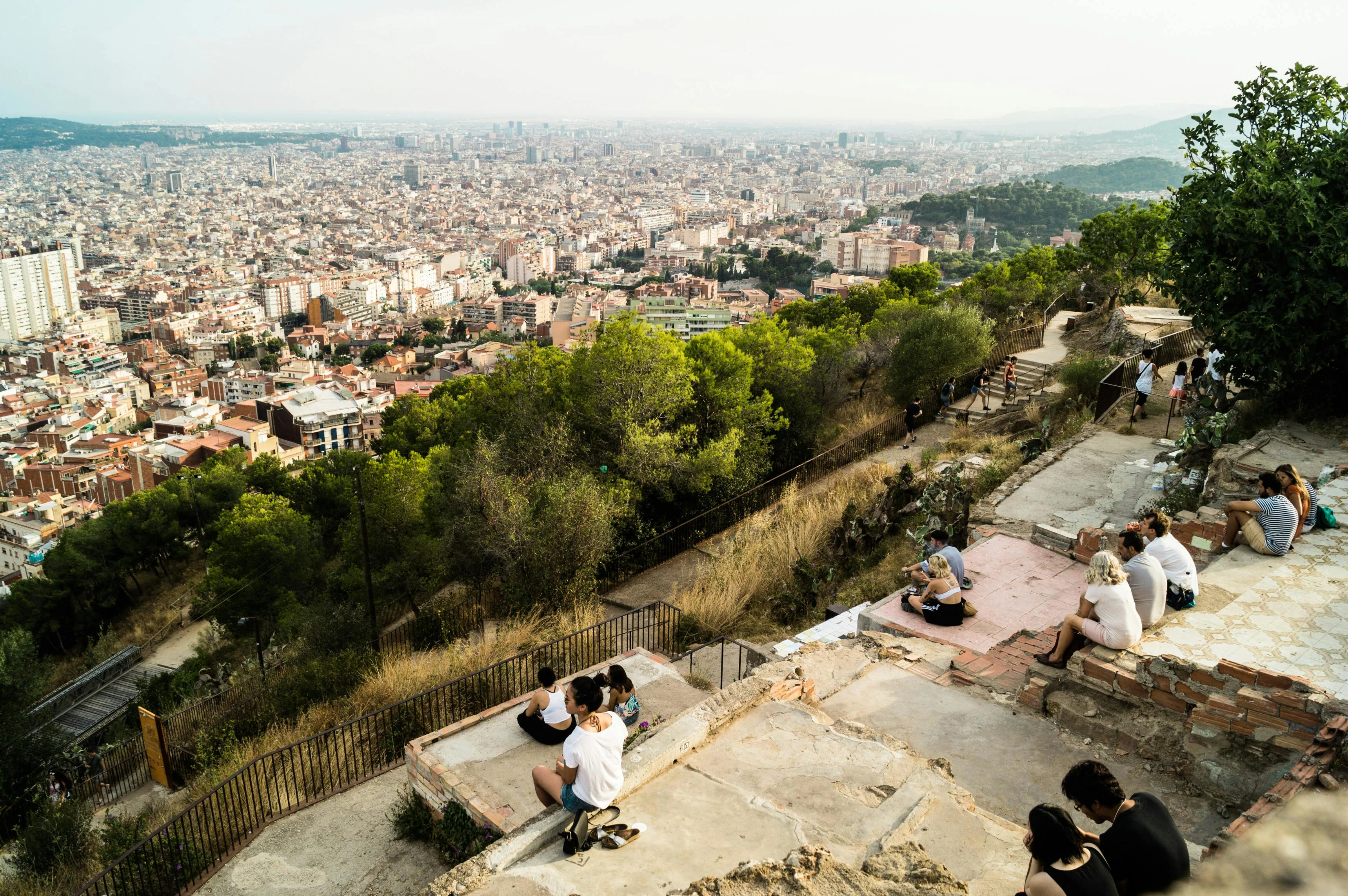
Study in Barcelona, international student city guide
Barcelona is one of Europe’s most exciting student cities. With its mix of top universities, sunny Mediterranean climate, rich culture, and buzzing student life, it attracts thousands of international students each year. It’s a place where history meets innovation – offering great education alongside beaches, tapas, and a famously relaxed lifestyle.
The city’s universities are well-respected across Europe and offer degrees in English, Spanish, and Catalan. Whether you’re studying business, art, technology, or international relations, Barcelona provides high-quality academic options and strong global connections.
Barcelona also has growing industries in tech, tourism, design, and sustainability, offering valuable internship and work experience opportunities. With affordable living costs compared to other major European cities, it’s an appealing choice for students worldwide.
Universities in Barcelona
Barcelona has a mix of public, private, and international universities offering a wide range of courses. Here’s an overview:
Public Universities in Barcelona
- University of Barcelona (UB)
- Autonomous University of Barcelona (UAB)
- Pompeu Fabra University (UPF)
- Polytechnic University of Catalonia (UPC)
- Open University of Catalonia (UOC)
- University of Vic – Central University of Catalonia (UVic-UCC) (Barcelona campus)
Private & International Universities in Barcelona
- ESADE Business School
- IESE Business School
- EU Business School, Barcelona
- EADA Business School
- Toulouse Business School – Barcelona
- Barcelona School of Design and Engineering (ELISAVA)
- IAB Institute of the Arts Barcelona
- LCI Barcelona
- Institut Químic de Sarrià (IQS)
- Barcelona School of Economics
- Abat Oliba CEU University
- Geneva Business School
- Barcelona Technology School
- Harbour.Space University
- Istituto Europeo di Design (IED Barcelona)
- UPF Barcelona School of Management
- Marbella International University Centre (Barcelona campus)
- Universitat Internacional de Catalunya (UIC)
- United International Business Schools, Barcelona (UIBS)
Barcelona university rankings 2025
Barcelona is home to several universities ranked among the best globally.
To learn more about rankings and how to interpret them, see our University Rankings Explained article.
The table below summarizes their positions in the QS and Times Higher Education (THE) World University Rankings:
| University | QS World Ranking 2026 | THE World Ranking 2025 | Notable Strengths |
| University of Barcelona (UB) | 160 | =149 | Spain’s top-ranked university; wide course offering; leading in research, Law, Life Sciences, Psychology, Business. |
| Autonomous University of Barcelona (UAB) | 172 | =199 | Renowned for research, innovation, sustainability, multidisciplinary studies, and strong industry links. |
| Pompeu Fabra University (UPF) | 265 | =176 | Excels in research, innovation, social sciences, economics, political science, biomedicine, and teaching quality. |
| Polytechnic University of Catalonia (UPC) | =392 | 601–800 | Top in engineering, architecture, technology, computer science, civil engineering, sustainability. |
| International University of Catalonia (UIC) | 801–1000 | 801–1000 | Strong in dentistry, nursing, medicine, architecture, business, law, communications, health sciences. |
| Open University of Catalonia | – | 601-800 | Pioneer in online education, ICT, distance learning, educational innovation. |
Cost of living and tuition fees
Barcelona is more affordable than many other major European cities like London or Paris, but it’s still important to budget carefully. Here’s a rough guide to yearly costs to expect:
Tuition Fees:
- Public universities: €1,000 – €3,000 (EU students), €4,000 – €7,000 (non-EU students, varies by course)
- Private/Business schools: €12,000 – €25,000+
Living Expenses:
- Accommodation: €4,800 – €9,000
- Food & groceries: €2,000 – €2,500
- Transport: €300 – €500 (T-Jove card for under-30s offers big discounts)
- Other expenses: €1,500 – €2,000
Many universities offer scholarships, and some regional or EU grants may be available. Sharing an apartment can also cut costs.
Visa and immigration information
If you’re an EU/EEA student, you don’t need a visa to study in Spain. Non-EU students need a student visa (Type D). Once in Spain, you’ll also need to register for a residence card (TIE). Universities usually provide guidance through this process.
You can find out more about visa requirements and how to apply on our Spain student visa guide.
Sign up to our regular email updates with advice on destinations, universities, scholarships and everything you need to prepare for studying overseas.
Sign up to our free emails nowStudent life in Barcelona
Barcelona is a vibrant and exciting place to be a student, offering a unique blend of culture, nightlife, nature, and activities tailored to young people. From world-class museums and architectural landmarks to festivals and beach days, the city has something for everyone.
Whether you’re into art, music, food, or outdoor adventures, Barcelona has endless ways to keep you inspired outside the classroom.
One of the best parts of student life here is how easy it is to explore. After classes, you can head straight to the beach to relax, grab tapas in the Gothic Quarter, or discover Gaudí’s colourful buildings around the city.
There are also plenty of music and cultural festivals throughout the year, such as Primavera Sound and La Mercè, which bring the city to life with performances and street celebrations.
If you’re more of an outdoor person, the nearby Collserola hills are perfect for hiking or cycling, offering views over the whole city. Student unions and Erasmus networks regularly host parties, day trips, and welcome events, making it easy to meet people and settle in. Plus, many attractions and transport options offer student discounts – just make sure to carry your student ID.
Most Interesting Attractions for Students:
- Sagrada Família – Gaudí’s iconic, still-unfinished basilica
- Park Güell – Colourful park full of mosaic art and great views
- Barceloneta Beach – Popular spot for sun, sea, and volleyball
- Gothic Quarter – Medieval streets full of cafés, bars, and tapas
- Montjuïc – Hill with museums, gardens, and panoramic views
- Bunkers del Carmel – Sunset spot with stunning city views
- MACBA – Contemporary art museum popular with skaters and art lovers
- Camp Nou – Home of FC Barcelona and a must-visit for football fans

Barcelona is generally a safe city for international students, but for more information about staying safe, read our top safety tips for international students.
Getting around Barcelona
Barcelona has an excellent transport system that’s safe, clean, and easy to use:
- Metro and Buses – Fast, regular, and well-connected.
- Trams and Trains – Serve both the city and outer towns.
- Cycling – The city is bike-friendly with a public bike hire service (Bicing).
- Walking – Central neighborhoods are compact and ideal for exploring on foot.
- T-Jove Travel Card – Unlimited travel for students under 30 at a low monthly price.
Career opportunities
Barcelona is quickly gaining a reputation as a hub for innovation, design, and startups. It’s one of the leading cities in southern Europe for tech companies, attracting digital talent from around the world.
The city regularly hosts major events like the Mobile World Congress, highlighting its role in the global tech landscape and offering students excellent networking and job opportunities.
Tourism and hospitality are also key industries in Barcelona, making it an ideal place for internships in hotels, travel companies, and event management.
The city’s vibrant creative scene supports strong career prospects in design and fashion, with many local studios, agencies, and international brands based here.
Barcelona is also a centre for international business and trade, with many global companies and consultancies running operations from the city. Education and research offer further opportunities, as several research institutions and think tanks are closely linked to universities.
To support students in their career journeys, universities in Barcelona host job fairs, help arrange internships, and provide career guidance. For international students from outside the EU, Spain offers a one-year post-study work permit, giving graduates time to find a job and gain valuable experience in the country.
Pros and cons of studying in Barcelona
Pros
- Great climate – Sunshine most of the year
- Affordable living – Compared to other major cities
- International vibe – A mix of cultures and languages
- Top universities – With English-taught programs
- Beautiful city – Beaches, art, history, and nightlife
Cons
- Language barrier – Spanish or Catalan are often needed outside class
- Tourist crowds – Especially in central areas
- Paperwork – Spanish bureaucracy can be slow
- Fewer part-time jobs – Especially without Spanish skills
- Housing demand – Good student apartments go quickly
